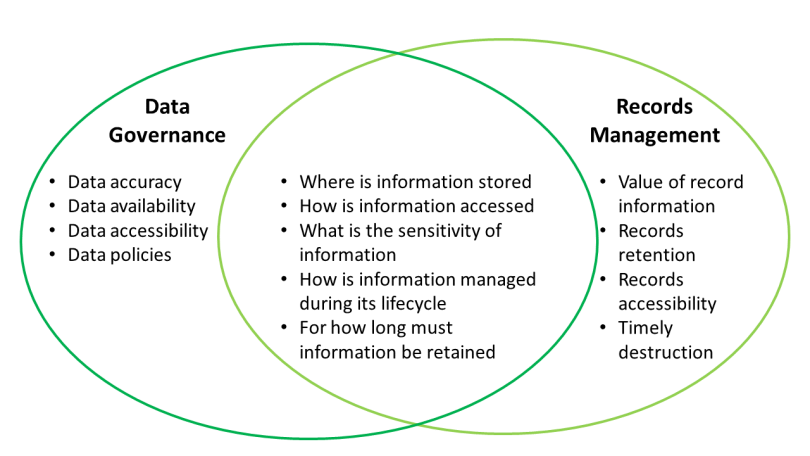Lifecycle
A data lifecycle is the sequence of stages that a particular unit of data goes through from its creation to its eventual disposal at the end of its useful life.
- Acquire: Institutional data are created or collected.
- Store: Institutional data are stored in a location that is both secure and easily accessible for further management and analysis.
- Aggregate: Institutional data in disparate datasets are combined through Dartmouth's data warehouse or other aggregate to create a larger dataset that is greater than the sum of its parts.
- Analyze: Institutional data are examined and transformed to extract information and discover new insights.
- Use: Dartmouth community members apply the insights gained from data analysis toward making decisions, affecting change, or delivering a product or service.
- Share: Data Stewards provide access to datasets or data insights to new groups of data users or consumers, respectively.
- Dispose: Based on applicable retention schedules, institutional data are removed from Dartmouth servers, applications, databases, and other locations to prevent future release or use.
